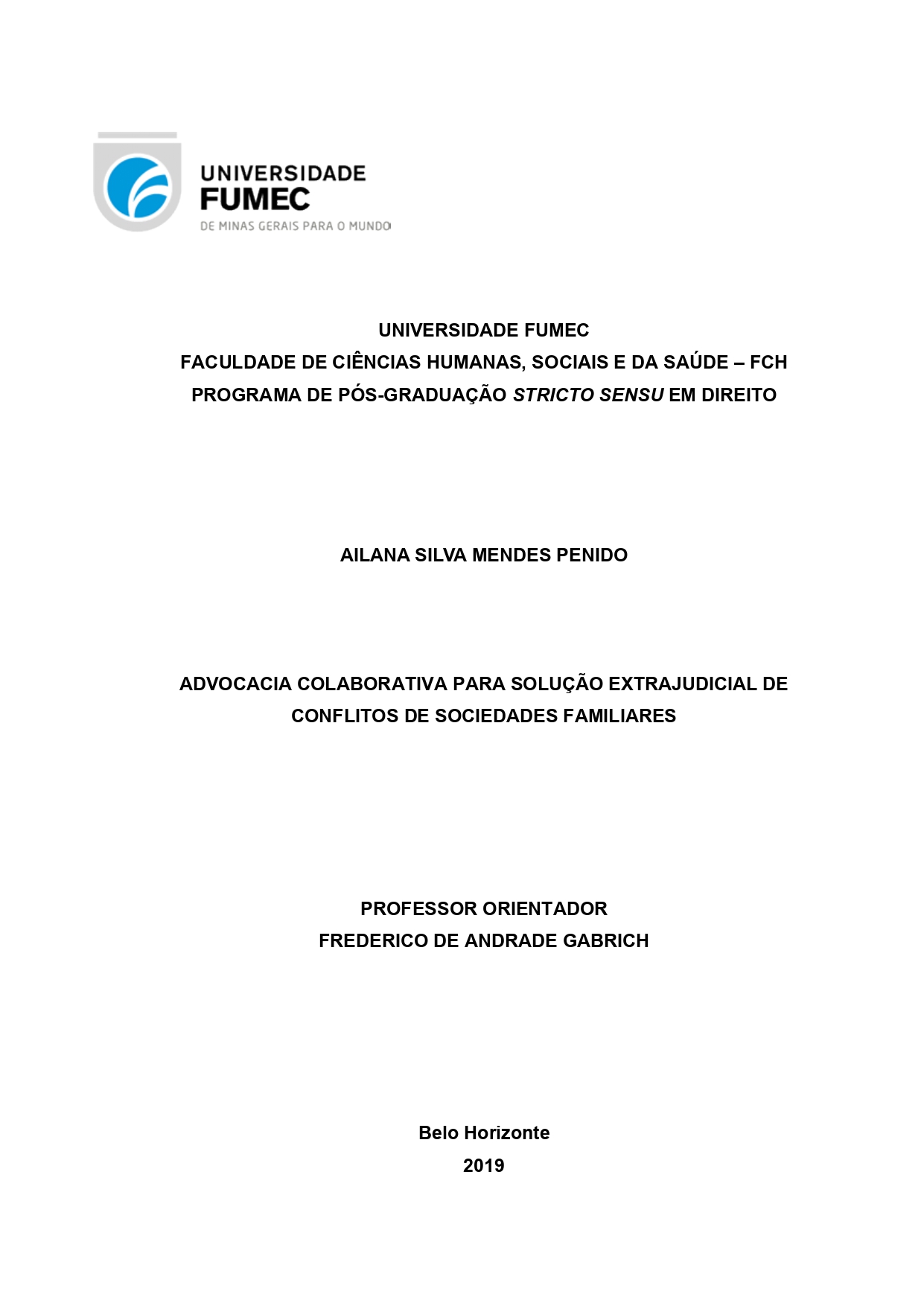Advocacia colaborativa para solução extrajudicial de conflitos de sociedades familiares

Visualizar/
Data
2019Autor
Penido, Ailana Silva Mendes
xmlui.mirage2.itemSummaryView.MetaData
Mostrar registro completoResumo
A partir do método hipotético-dedutivo e do marco teórico da Análise Estratégica do
Direito do Doutor Frederico Gabrich, o presente estudo científico tem como tema
problema a análise da eficácia da utilização de cláusula que preveja a advocacia
colaborativa, associada à cláusula “neg-med-arb”, nos contratos núcleos definidos
pela JUCEMG a fim de se estabelecer a composição extrajudicial de conflitos desde
os primórdios da sociedade, quando da assinatura do contrato social. Dessa forma,
analisa-se a viabilidade e a necessidade de se estabelecer, nos contratos núcleo da
JUCEMG, a implementação prévia da cláusula de advocacia colaborativa, combinada
com a cláusula “neg-med-arb”, para se fortalecer a utilização estratégica do direito, o
aprimoramento da governança jurídica da sociedade familiar, e os mecanismos
societários necessários para valorização da solução extrajudicial de eventuais
conflitos societários. From the hypothetical-deductive and inductive methods, and from the theoretical
framework of the corporate norms provided, above all, in the Civil Code regarding
limited societies, the present scientific study has as its problem the analysis of the
effectiveness of the use of a clause providing for the collaborative law, associated with
the “neg-med-arb” clause, in contracts defined by JUCEMG in order to establish the
extrajudicial composition of conflicts since the beginning of society, when the social
contract was signed. Thus, the feasibility and the need to establish, in contracts of
JUCEMG, the prior implementation of the collaborative advocacy clause, combined
with the “neg-med-arb” clause, in order to strengthen strategic utilization of law, the
improvement of the legal governance of the family society, and the corporate
mechanisms necessary for valuing the out-of-court settlement of eventual corporate
conflicts.
